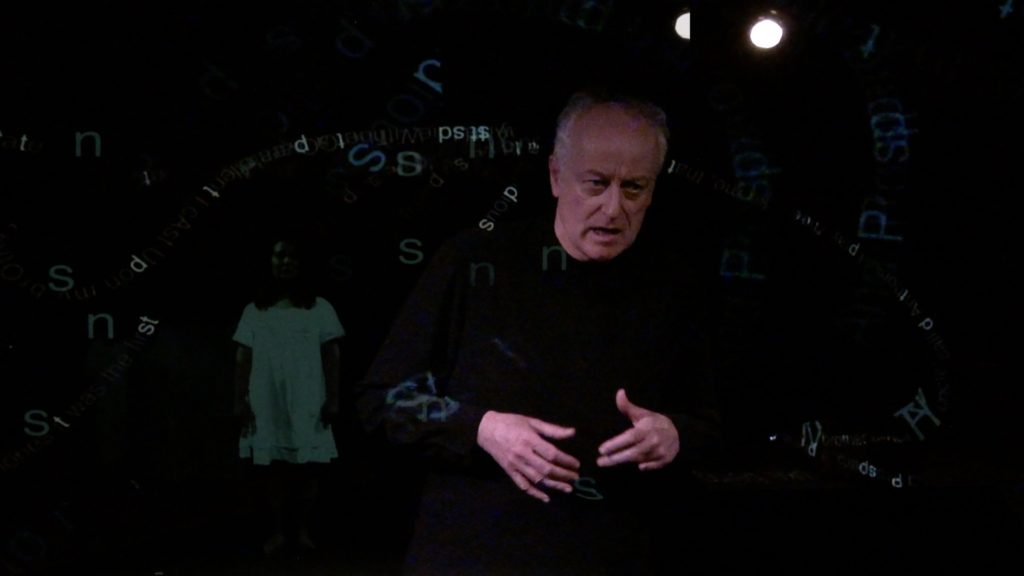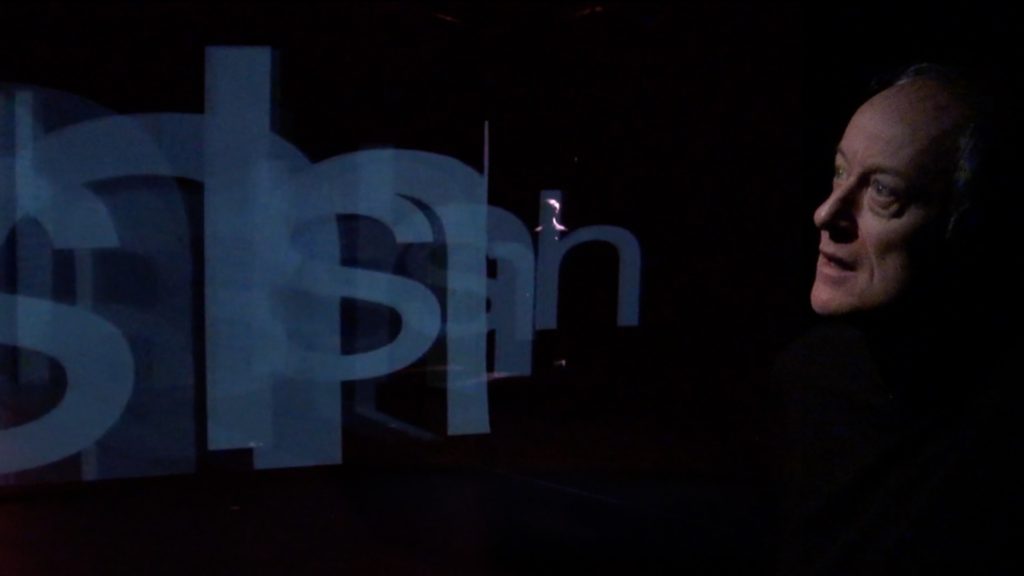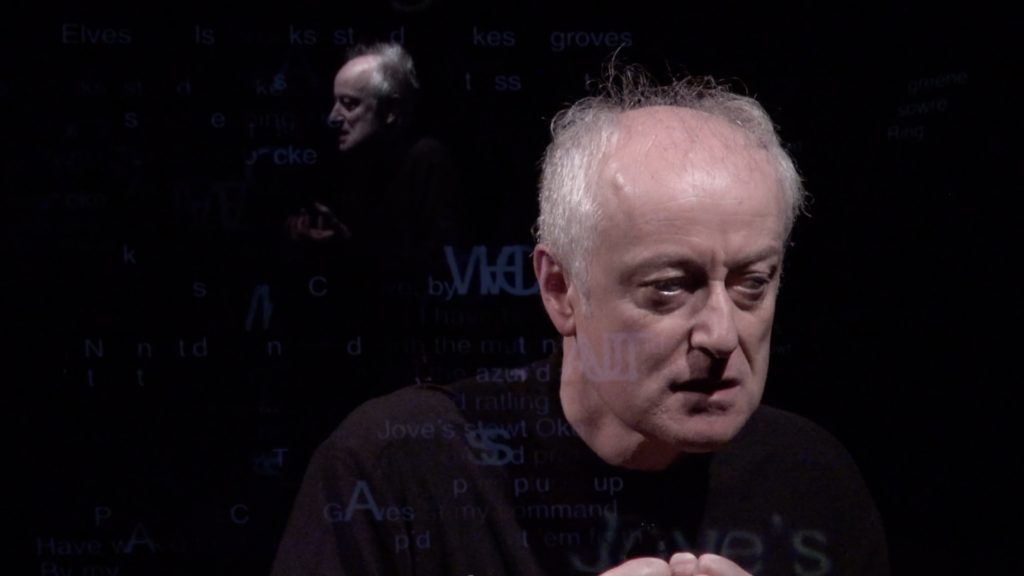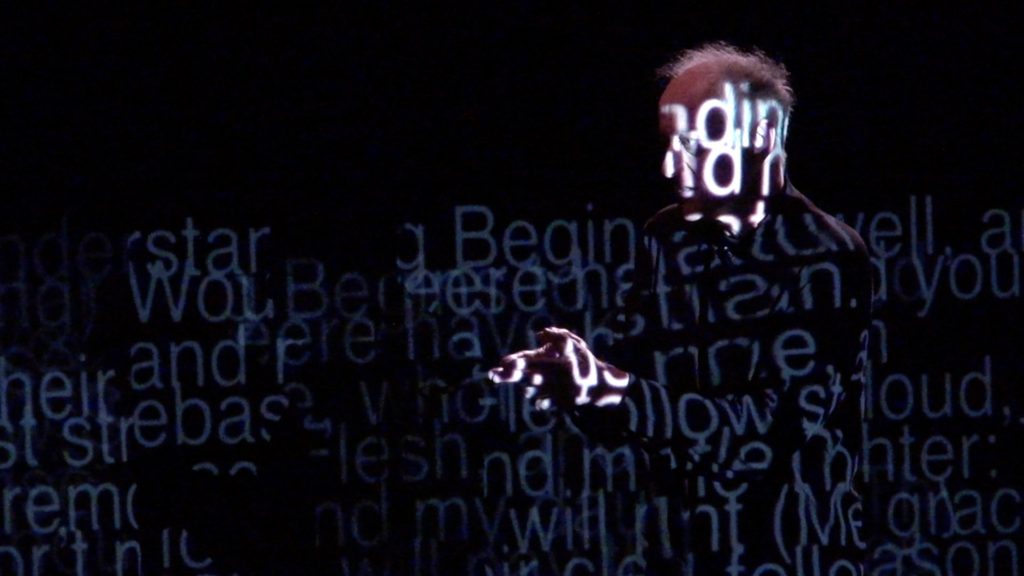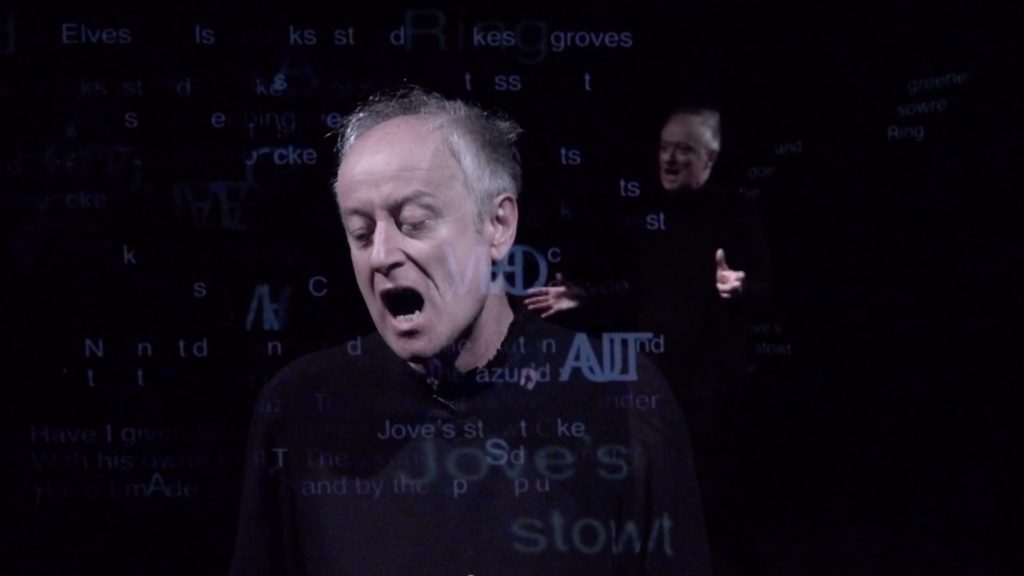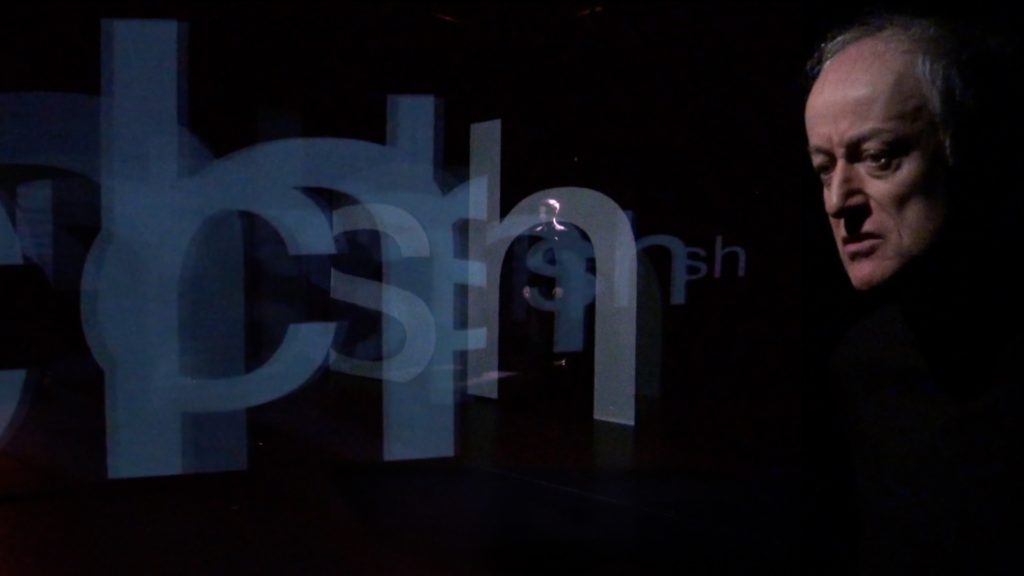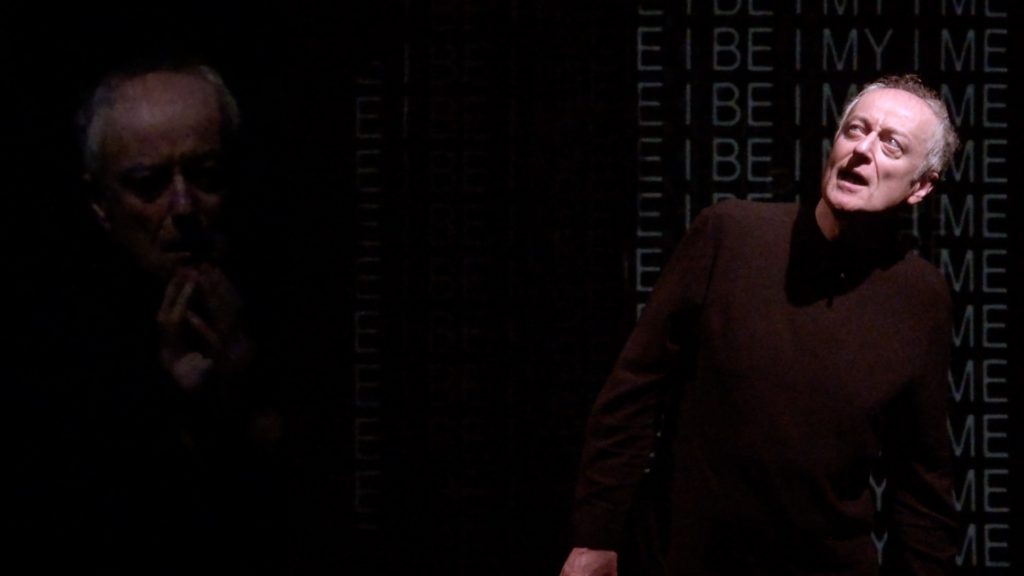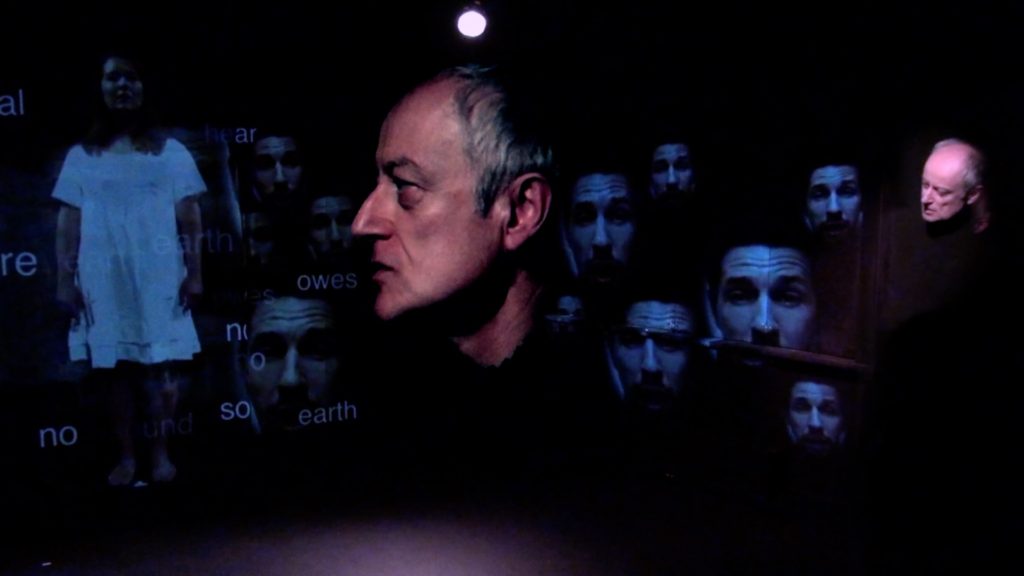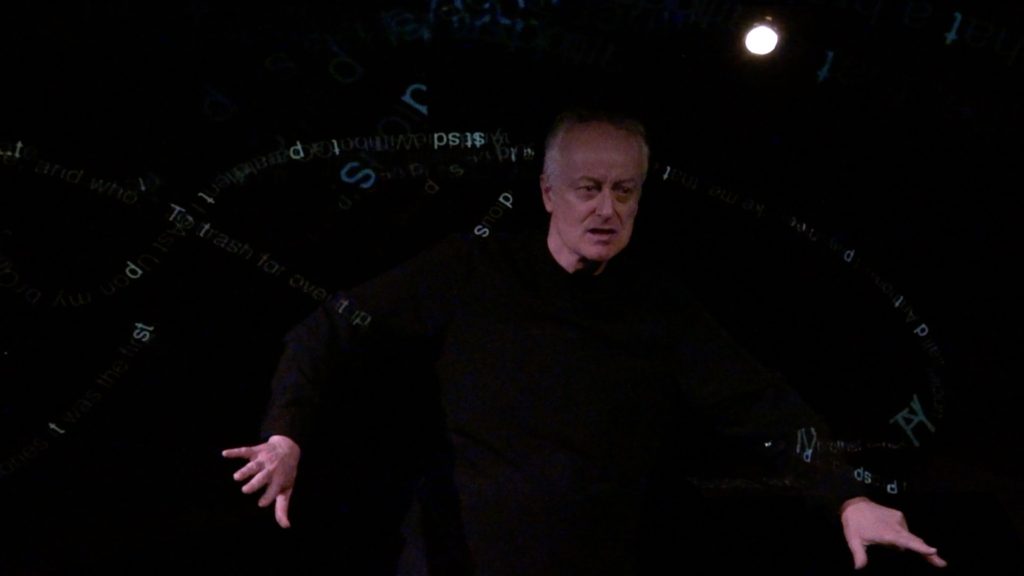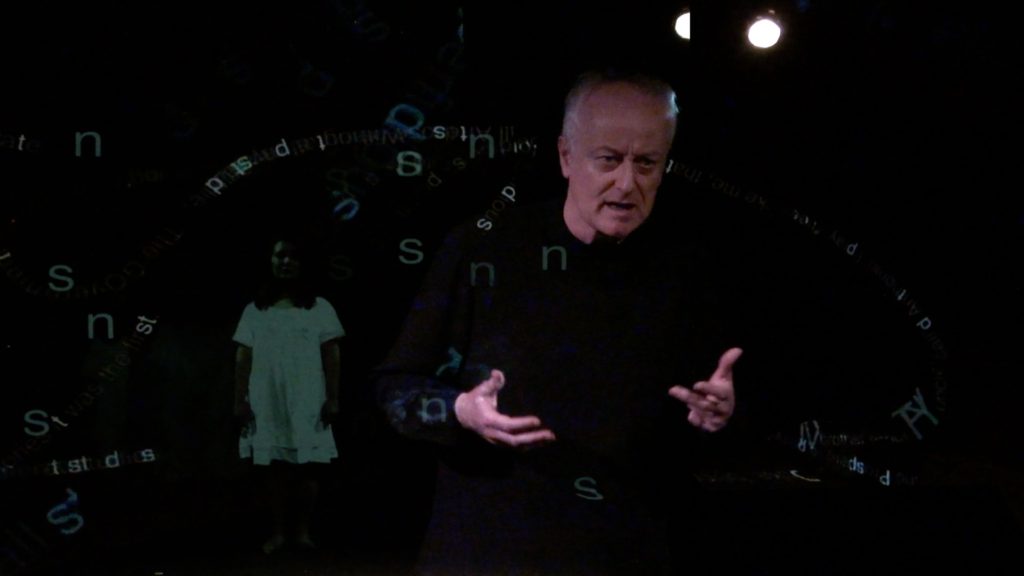Hear My Soul Speak
Text by William Shakespeare
London Theatre Workshop
RADA Festival
Rose Bruford College International Symposium
London 2018
Adapted by Christopher Hurrell and Gerrard McArthur from The Tempest
Truly revelatory. I felt like I understood Prospero and Caliban more thoroughly in the extracts brough vividly to new life here, than in countless dreary productions of the entire work. A thrilling theatrical achievement.
LIVE THEATRE UK
Prospero / Caliban / Ariel
Gerrard McArthur
Miranda
Alice Haig
Singer
Russell Harcourt
Director
Christopher Hurrell
Video Design
Ben Glover
Sound Designer
Nikki Aitken
Set Design Consultant
Justin Nardella
Stage Manager
Jari Laakso
Video Operator
Joanne Cooper
The work-in-progress ‘Hear My Soul Speak’, from which the following video excerpts are drawn, has been developed from a series of ongoing experiments, designed to investigate the capacity of the “verbal music” of Shakespeare’s language in The Tempest, to suggest an account of the complexity, irrationality and nuance of human experience in the character of Prospero, through its somatic impact on the actor.
Nowhere else in Shakespeare is the action, and even the disposition of all the characters so utterly the construction of the central protagonist. Shakespeare uses the device of a stage magician – a Faustian necromancer, to explore a single character-persona through all the stage action of the drama.
This expressionist approach to characterisation is fuelled by some of the most knotted, ornate and ethereal language in the Shakespearean canon. That language creates a sound world that is simultaneously the world of the island, and a sonic portrait of Prospero’s psyche. Gerrard McArthur (Howard Barker’s The Wrestling School) plays Prospero in a performance that draws not just on Prospero’s own words, but those of his alter-egos Ariel and Caliban.
Our practice laboratory workshops have investigated patterns of sound embedded in the poetic structures of this language, and the ramifications such patterns might have for the interpretation of the mental and emotional life of the character. Modern dramatic literature interrogates the ‘sub-text’ to find unspoken emotional truths. Shakespeare’s dramatic literature, composed according to the laws of rhetoric, explores the implicit and subliminal in human experience through the ‘music’ of what we might call the ‘sound-text.’
What our research has uncovered, is a disconnect between the ostensible meaning of the things Prospero says, (which very often speak of supreme authority, justice, and redemption) and the implications of the verbal music of his poetry, which often suggests turmoil, vindictiveness and self-abnegation. Unlike Hamlet, Prospero does not explicate his mental struggle for our benefit, rather it is inculcated through the sound of the language and presence of the actor-speaker.
Our experiments are aimed at bringing this phenomenon to bear not just on the interpretative work of the actor, but also on the audience’s experience of the language as both sound and meaning. Through video projection of simple textual animations and live footage, we’ve aimed to suggest a visual expression of the sonic patterning in the poetry, and how that patterning portrays an ongoing struggle between meaning and feeling, in which Prospero is at once the master of language, and its captive.
The incorporation of live footage in those projections is informed by our investigation of the dispersed, refracted way in which the portrait of Prospero’s mental experience, rather than being directly described in the play, gradually emerges through implication and evocation: in the play’s structure and action, through its other characters (all of whom are subject to Prospero’s will and so may be thought of as refractions of his subjectivity) and most especially in the play’s music.
Music in the play is performed at Prospero’s command, and is the expression of his ‘magic’, which can be best thought of as ‘outward-emanating power of his mind’. Shakespeare’s decision to make music the pre-eminent element in his theatrical representation of Prospero’s magic would have had rich thematic implications for his original audience. The Renaissance mind understood music and magic to be related phenomena, and even for music to have magical properties under certain conditions. The performance incorporates some of the play’s surviving music by the play’s gifted original composer, the Court lutenist Robert Johnson. The rest of the play’s music is thought to be lost. However, I’ve conducted further research into Johnson’s other surviving theatre music to partially reconstruct an indicative original score for the play, sung by an operatic countertenor.
I’ve drawn these experiments together into a 45-minute performance sketch of three short movements. This piece represents not a conclusion but a manifestation of our investigation to date, that enables us to further evolve our thinking about the work. As such we hope you’ll join with us in experiencing the excerpts that follow as a provocation to the imagination, and enter a conversation with us about what this work might become.
This work was developed with the support of London Theatre Workshop, Goldsmiths, University of London, Rose Bruford College of Theatre and Performance the Royal Academy of Dramatic Art, and Creative Partnerships Australia.
It was made possible through generous contributions by Isla Baring OAM, Wayne Harrison AM, Chris Puplick AM, Professor Nesta Jones, George Kingston, Debra Oswald, Kerry Comerford, Mark Thompson, Roslyn Balston, Fiona Press, Margaret and Jim Hurrell, Jeff Hurrell, Ashley Hurrell, David Hillyard, Hellen Riley, Justin Fleming, Isabella Dunwill, Christopher O’Shaughnessy, Eva Lewkowicz, Christine Firkin, Justin Davies, Luc Mollinger and Daniel Sparrow.
